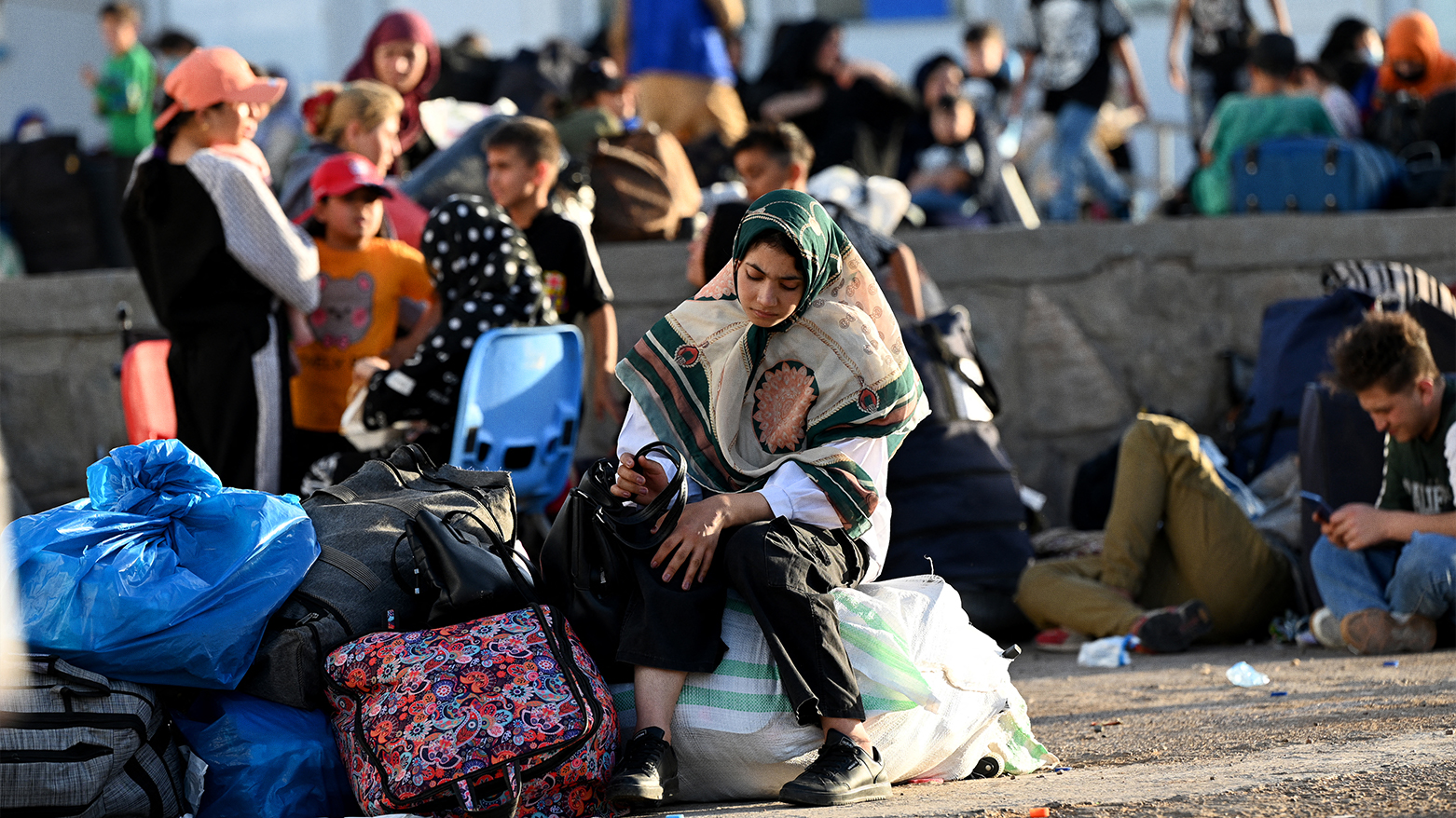Over 230,000 Afghans Return from Iran Ahead of Tehran's Deportation Deadline
Over 230,000 Afghans were returned from Iran in June, mostly forcibly, amid a surge in deportations ahead of Tehran’s July 6 deadline. Iran has deported 366,000 Afghans in 2025. The mass returns strain Afghanistan’s fragile economy and humanitarian capacity.

By Kamaran Aziz
ERBIL (Kurdistan 24) — More than 230,000 Afghans returned from Iran in June, most of them forcibly deported, amid a dramatic surge in expulsions ahead of Tehran’s July 6 deadline for undocumented migrants to leave the country, the United Nations migration agency said Monday.
According to figures provided by the International Organization for Migration (IOM), 233,941 Afghans returned from Iran between June 1 and 28. In just one week, from June 21 to 28, 131,912 returnees were recorded, IOM spokesman Avand Azeez Agha told AFP.
The scale of returns has intensified in recent days, with as many as 30,000 individuals crossing back into Afghanistan daily, particularly through the Islam Qala border point in Herat province. The IOM warned that numbers are expected to rise further in the days leading up to the Iranian-imposed deadline.
Since January, a total of 691,049 Afghans have returned from Iran, with 70 percent of them deported, according to IOM data. The returnees now include a growing proportion of families, with men, women, and children carrying their belongings in suitcases and plastic bags, often arriving with few assets and limited prospects for employment.
The United Nations has described the surge in returns as a mounting humanitarian concern, especially in a country already grappling with entrenched poverty, high unemployment, and limited institutional capacity. Afghanistan remains in a fragile recovery phase after decades of war, now governed by the Taliban, who have called for a "dignified" return of Afghans from neighboring states.
Kabul’s Foreign Minister Amir Khan Muttaqi raised the Taliban government's concerns in a meeting with Iran’s ambassador. A statement from the Afghan side said, “A coordinated mechanism should be put in place for the gradual return of migrants.”
Iran, alongside Pakistan, has long served as a destination for millions of Afghans fleeing conflict, economic hardship, and natural disasters. However, both countries have in recent years ramped up deportations. The cash-strapped Taliban government now faces increasing difficulties in reintegrating returnees, who have been arriving in vast numbers from both Iran and Pakistan.
According to the U.N. High Commissioner for Refugees (UNHCR), at least 1.2 million Afghans have been forced to return from Iran and Pakistan so far in 2025. More than half of these returnees came from Iran, following a March 20 deadline that urged undocumented migrants to leave voluntarily or face deportation. Iran alone has deported over 366,000 Afghans this year, including recognized refugees and individuals in refugee-like situations. The highest single-day return was on June 26, when more than 36,000 Afghans crossed back into Afghanistan amid escalating tensions tied to the Iran-Israel conflict.
In April, Iranian authorities reported that over 6 million Afghans were residing in the country, with up to 2.5 million lacking legal status. Iran’s Attorney General Mohammad Movahedi Azad on Saturday reiterated Tehran’s call for illegal foreign residents—particularly Afghans—to leave “as soon as possible” or face legal consequences. “Foreign nationals, especially brothers and sisters from Afghanistan whom we have hosted for years, help us so that illegal individuals leave Iran in the shortest period,” he said, as quoted by the official IRNA news agency.
Mounting public pressure, economic challenges, and regional security concerns—including unverified allegations of Afghan nationals being involved in espionage—have further fueled deportation campaigns.
Iran’s top diplomat in Kabul, Ali Reza Bikdeli, visited the Dogharoun border this week and stated that Tehran is working with Afghan officials to ensure a “smooth and humane return.”
The humanitarian crisis is further compounded by dwindling international aid. The IOM stated it was “only able to assist a fraction of those in need.” On some high-volume days at Islam Qala, assistance reached as few as three percent of returnees.
Afghans arriving at the border told AFP that they were subjected to growing pressure by Iranian authorities. Samiullah Ahmadi, 28, said it was his first time in Afghanistan, having been born in Iran. “I was born there (Iran). But the situation for Afghans is such that no matter how good you are or even if you have valid documents, they still don't treat you with respect.”
While none of the returnees cited the ongoing Iran-Israel conflict as a reason for their deportation, the United Nations Assistance Mission in Afghanistan (UNAMA) noted in a statement that “regional instability — particularly the fallout from the Israel-Iran conflict — and shifting host country policies have accelerated returns, overwhelming Afghanistan's already fragile humanitarian and development systems.”
The Taliban have promised to support returnees and offered public assurances during Eid al-Adha. Taliban Prime Minister Mohammad Hassan Akhund invited Afghans who fled after the regime change to return, pledging their safety. A high-level Taliban delegation visited Herat last week to meet returnees and vowed to provide urgent humanitarian services and long-term assistance.
Meanwhile, Pakistan has set a June 30 deadline for the expulsion of 1.3 million Afghans, with a target of deporting up to 3 million by year’s end, placing even more strain on Afghanistan’s already overstretched institutions.
